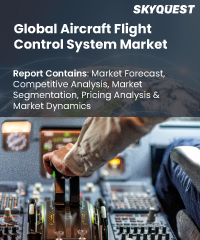
Report ID: SQMIG45F2125
Skyquest Technology's expert advisors have carried out comprehensive research and identified these companies as industry leaders in the Aircraft Flight Control System Market. This Analysis is based on comprehensive primary and secondary research on the corporate strategies, financial and operational performance, product portfolio, market share and brand analysis of all the leading Aircraft Flight Control System industry players.
On a regional and international scale, there are numerous major players in the aircraft flight control system industry. For the aviation and aerospace industries, these players are creating new technology and goods. For instance, in July 2021, Collins Aerospace, the leading aerospace, and defense company based in the US launched its Perigon computer, which is available for a wide range of defense and commercial platforms such as flight management systems
Aircraft Flight Control System Market Top Player’s Company Profile
REQUEST FOR SAMPLE
Want to customize this report? This report can be personalized according to your needs. Our analysts and industry experts will work directly with you to understand your requirements and provide you with customized data in a short amount of time. We offer $1000 worth of FREE customization at the time of purchase.
Feedback From Our Clients

Report ID: SQMIG45F2125
sales@skyquestt.com
USA +1 351-333-4748